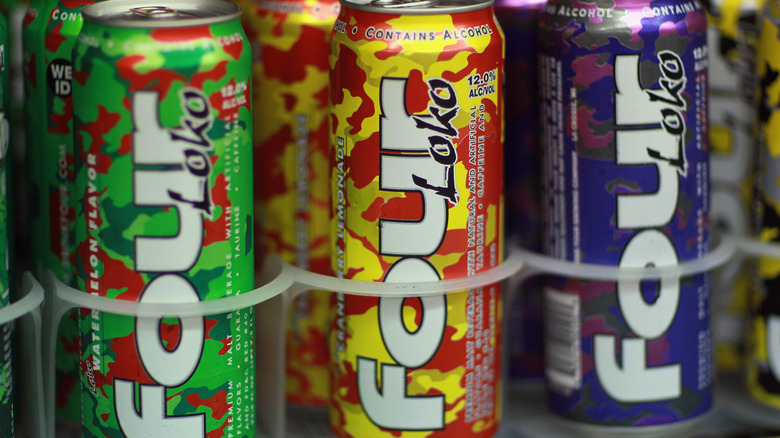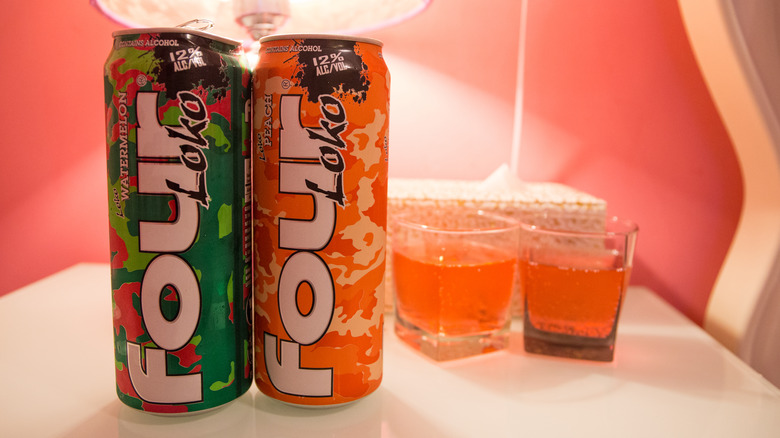The Caffeine-Infused Four Loko That Deserved To Fail
When Four Loko was introduced to the world in 2005 by a group of former Ohio State University students, it was all the rage with party-goers, particularly on college campuses. The high-octane alcoholic malt beverage, which in its original iteration featured a volatile four-part mix of alcohol, caffeine, taurine, and guarana, per Esquire, seemed like the perfect drink combination for midnight revelers.
Four Loko came in fruity varieties such as strawberry lemonade and watermelon and allowed those who drank it to get intoxicated but still stay awake all night and shake it on the dance floor. It was both a stimulant and a depressant, with one can acting as the equivalent of downing almost a whole six-pack of beer and quaffing more than a cup of coffee (via Consumer Reports).
If an uninhibited person full of nervous, unbridled energy sounds like a bad idea, subsequent events would prove these concerns valid. It didn't take long before the caffeine-infused version of Four Loko began attracting publicity for all the wrong reasons.
The alcoholic energy drink known as 'badness in a can'
In 2010, things started to fall apart precipitously for Four Loko's caffeinated tipple. Harvard issued a warning to students cautioning them not to drink Four Loko, which one University Health Services administrator called "badness in a can" and other health officials declared "hazardous," per The Harvard Crimson. The FDA weighed in with its own admonishment letter to Four Loko, as well as three other malt beverage makers, for adding the "unsafe food additive" of caffeine to their alcoholic products. By this time, studies had also begun to emerge showing the health risks of mixing alcohol with caffeine (via ABC News).
Reports surfaced of illnesses at parties that, upon investigation, were linked back to Four Loko consumption, including one at Central Washington University that saw nine students hospitalized. One family even sued the makers of Four Loko, Chicago-based Phusion Projects, after their 15-year-old son died from drinking two cans of the drink prior to attending a concert, reported CBS News.
The regulatory letters, complaints, and lawsuits led Four Loko's creators to voluntarily remove the stimulant ingredients in the drink later that year, including the caffeine, guarana, and taurine. Despite the failure of caffeine-infused Four Loko, the product still exists as a reformulated, non-caffeinated version of its former self.

